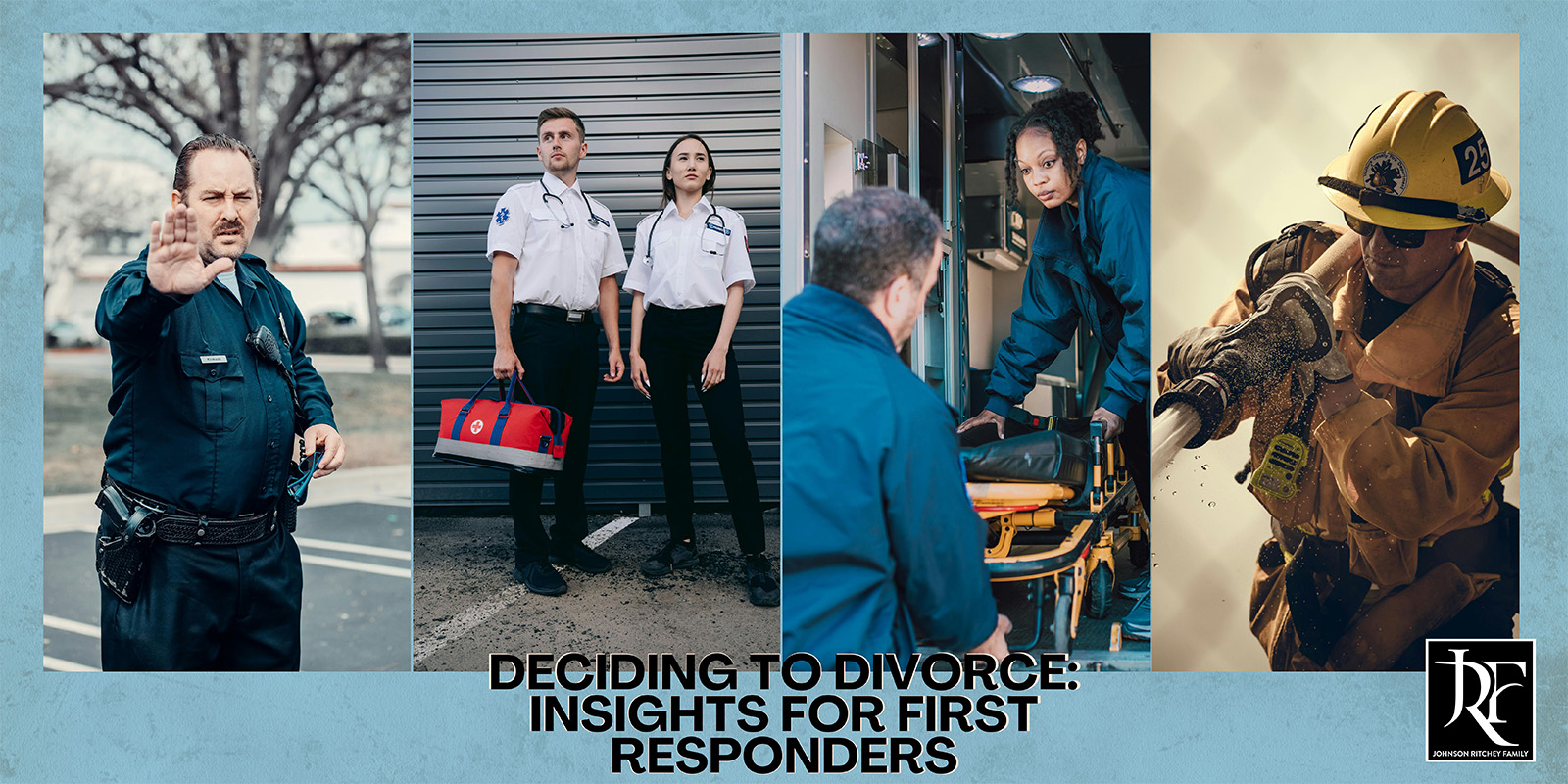Deciding to Divorce: Insights for First Responders

Divorce is often a complex and emotionally challenging process, but when one or both spouses are firefighters or law enforcement officers, additional unique hurdles can arise. Let’s explore some of these issues:
Shift Work and Scheduling
One of the primary challenges faced by firefighters and law enforcement officers navigating the divorce process is irregular work schedules. Many emergency service jobs involve long shifts with even longer breaks on a repeating cycle. For example, many firefighters, paramedics and EMTs work 24-hour shifts followed by 48 hours off. Such scheduling irregularities can affect timesharing schedules during divorce, requiring thoughtful planning to ensure fair and feasible parenting plans maximizing the time the parties’ children can spend with each parent. Being flexible and working together can help parties reach the best timesharing schedule for their family.
Pension and Retirement Benefits
Many firefighters and law enforcement officers are entitled to pension and retirement benefits governed by specific regulations. Divorce can impact these benefits, requiring careful evaluation and negotiation to ensure equitable distribution of assets and financial support post-divorce. Legal expertise in dealing with pension plans and retirement benefits is essential for achieving fair outcomes in these cases.
Stress
Firefighters and law enforcement officers often encounter traumatic events and high-stress situations in their work. Divorce proceedings can often lead to heightened emotional stress. Addressing these emotional aspects during divorce negotiations and being cognizant of these issues is crucial for creating a productive environment conducive to amicable resolution of family law matters.
Physical Risks and Insurance Considerations
Another critical aspect to consider is the physical risks associated with these professions. Firefighters and law enforcement officers often put themselves in harm’s way to protect others, leading to potential injuries. During divorce, issues related to health insurance coverage, disability benefits, and workers’ compensation may arise, requiring specialized legal expertise to ensure fair and comprehensive settlements.
Legal Expertise and Understanding
Given the unique challenges faced by spouses in emergency services, seeking legal counsel experienced in family law and familiar with the intricacies of these professions is crucial. A knowledgeable attorney can provide guidance tailored to the specific needs and circumstances of firefighters and law enforcement officers, helping navigate the divorce process with empathy and expertise.
In conclusion, divorces involving spouses in emergency services present distinct issues that require specialized attention and understanding. Addressing these challenges effectively involves comprehensive legal support and a focus on fair and practical solutions. By acknowledging these unique aspects, Johnson Ritchey Family Law can better advocate for our clients in these professions and their spouses, ensuring a smoother transition through the divorce process.
For more information on first responder divorce, please visit our Firefighter and Law Enforcement Divorce page.














